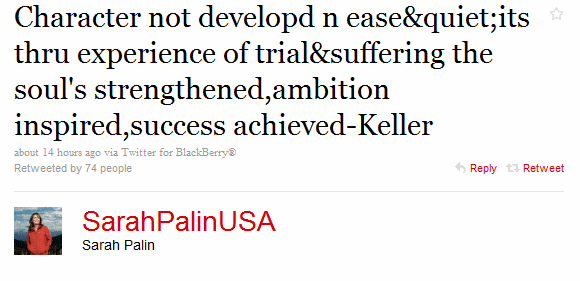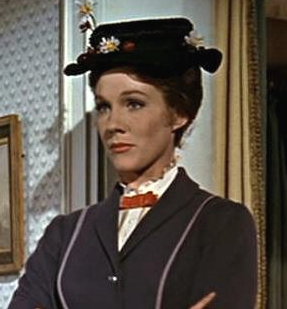Kanye West's Big Mouth Painted By George Condo

Man, when you’re on a roll. To accompany his comeback single “Power,” which has many people standing up at their computer terminals to shout out loud and type extra hard about how much they love it, Kanye West went and got the renowned New Hampshire-born artist George Condo to paint his portrait for the cover. Kanye has often rapped self-reflectively about his ego and big mouth (famously calling himself an “international asshole” on 2005’s “Diamonds From Sierra Leone”) but to see the self-criticism depicted visually like this, and after his foibles landed him in so much trouble at last year’s VMA’s, it’s pretty cool.

Meanwhile, the rest of the hip-hop world just tries to keep up. R&B; singer/songwriter The-Dream bites the artwork from Kanye’s last album, 808s & Heartbreak, for the cover of his new album, Love King.


And Eminem goes in for some art-appreciation at a museum in France:

The Perfect Men's Swimsuit, for the Tardy

It is true that, despite the horrifying epidemic of cargo shorts on men right now (it’s so awful! They are so ugly! There are so many other kinds of shorts to wear, you lazy things!), at least swimsuits for men are largely in a good, agreed-upon place right now. (Handy 2010 guide: Dolce is too short, Thom Browne and Theory are too long, and Paul Smith is either too long or too short. Also Marc Jacobs is too girly.) It is well-described as James Bond-ey, or, as I like to think of it, James Bondi Beach. (SEE what I did there?) They are “classic swim trunks with a two-inch inseam, the short, sporty kind,” as today’s Times puts it. Amusingly, Parke & Ronen, the swimsuit purveyor they profile-shopping for these trunks on Ninth Avenue! Gasp!-was pimping the four-inch inseam back in 2006. Anyway, why are you buying swimsuits in early June? Where were you back in February? Jesus, quick, just buy whatever’s left, you’re lucky to find any clothing at all! (Also, just buy this or this.)
Sarah Palin and Helen Keller

Sarah Palin is clearly a big fan of Helen Keller, the deaf and blind social activist whose opposition to war and support for worker’s rights, among other leftist positions, would seemingly put her at odds with Palin. The untruncated quote is, “Character cannot be developed in ease and quiet. Only through experience of trial and suffering can the soul be strengthened, ambition inspired, and success achieved.” It’s an excellent point. Perhaps that’s what Palin had in mind when, during her brief tenure as governor of Alaska, she slashed funding for the state’s Special Education Service Agency (SESA) and the Alaska School for the Deaf. I’m sure those kids developed a ton of character.
Armando Galarraga And The Impossibility Of Perfection
“I told him, ‘Nobody’s perfect.’ What am I going to say?”
–Detroit Tigers pitcher Armando Galarraga discusses his conversation with umpire Jim Joyce, whose botched call on the final out of last night’s game against the Cleveland Indians robbed Galarraga of what would have been the 21st perfect game in baseball history. Joyce apologized profusely, Galarraga and his teammates and manager reacted with a remarkable degree of equanimity; apart from the fact that there was a terrible call that deprived a man of the greatest achievement any pitcher can hope to attain, everyone involved reacted rather well. You can almost see the bright side of it for Galarraga: 20 pitchers have perfect games; only one has “the perfect game that wasn’t.” He’s got his own place in history now. Besides, the way things are going this season there will probably be another perfect game pitched at some point next week. It might even come from Galarraga. God knows the guy’s earned it.
Domestic Slave System Being Slowly Dismantled

A strange thing is happening in corners of America: over the course of the next few years, the rightsless, sometimes near-slavery system of “undocumented” and other household workers will be chipped away. Well…. somewhat. And slowly. Now that both the New York Assembly and Senate have passed bills that give a very few workplace rights to domestic employees, full-time household “help” becomes less disposable, very slightly regulated and also less likely to be coerced into working overtime without pay. These bills address the “full-time” employed, however-not the vast majority of part-time workers, like people who do household cleaning. Still, New York’s Republicans largely remain opposed to the bills! Their rationale: it makes employers afraid to fire nannies that abuse their children. Isn’t that fun when people make things up? Vacation days for nannies = beaten children.
The 'New Yorker' List: 20 Under 40
The New Yorker’s “20 under 40” list of fiction writers is out. (One piece of great news: Chris Adrian is on it!)
The Beautiful Outfit Is Empty

The contention that the women of Sex and The City 2 are considered too old to be sexually appealing is partly correct. Youth and sex appeal are inextricably linked, no doubt, and the sad phenomenon of mutton dressed as lamb (or L.A.M.B., I guess,) which certainly applies here, appears as the subject of mockery in every culture I can think of. But that isn’t the whole story. The real problem isn’t that the women of SATC2 are mature; it’s that they are not.
We can forgive younger people who worship at the temple of self a little more readily, because they are too young to know any better (though we don’t like it much even then, as the recent M.I.A. debacle demonstrated so forcefully.) The young and selfish have still got a reasonable shot at reform, is the thing. But to see a character in her 40s who is still obsessed with herself to the exclusion of nearly all other interests, who refers to herself in the third person, who is still preening and shopping and acquiring and posing, is to see a woman who has failed to grow up. This is a stunted creature.
Consider the marriage at the center of this film, that this Carrie Bradshaw apparently waited so long for and suffered so much to achieve (or really, get, I suppose I should say.) This marriage seems terribly, nightmarishly empty. The film shows us no in-jokes, no intellectual engagement, no discussion of anything but romantic matters and expensive gifts, no wit, no real conversation about work or events of the day or family, even, let alone what might be shared interests like politics or art or music. I could feel only pity for the henpecked husband, Mr. Big, who is at least shown to be capable of thinking for two seconds about anyone besides himself; what he is getting out of the bargain is impossible to determine. What kind of love affair is this? Compare it with the real article, or Jane Austen. A real lover is telling you, look: I have now found the one person who can make sense of this world for me. But that is not the sort of thing we are seeing the slightest scintilla of in SATC2, because nobody in the movie is capable of it.
If it is difficult to believe Carrie B. as a lover, it is outright impossible to believe that she is a writer. It would be hard to imagine a less articulate, perspicacious or observant person than the one depicted here. At one point she’s shown reading Nancy Mitford, of all people, who was a decent novelist, but who was also a very childish, self-involved, unhappy woman whose love life was an utter trainwreck. I had to wonder if this might not have been a sly little joke on the part of some bookishly-inclined art director or set designer.
Since these women have not grown or developed intellectually, professionally or in any other way, their characters must be swollen out via the only attribute they’ve got left: expenditure. They are what they spend. There wasn’t a single review I read of this movie that did not mention the $22,000 room rate at their fabulous Abu Dhabi temple-to-conspicuous-consumption. Not one Maybach, but four (symbolic, almost, of how self-obsession has become isolation); not just one swarthy young buck of a concierge to look after them, but four; an enormous table groaning under a Trimalchian feast, for just four slender women who will take only a little fruit. This is self-indulgence taken past vulgarity, past gluttony, past even nausea. These people are like geese being force-fed so their livers can be turned into foie gras. They change their (fantastically hideous) clothes about twenty times a day, because, well because they’ve just become more and more like they are, to the point where we too must choke on their excess.
As many have taken to pointing out in connection with this movie, there are some mature women who are still in possession of more sex appeal than most people will ever have in their whole lives. It is kind of a sad thing, I’ve often thought, that this ineffable quality should be so unevenly and capriciously distributed as it is. In any case, obviously, sex appeal is about far more than just the physical. Mature people who are self-aware, not self-obsessed, are powerfully attractive, sexually and in every other way. Men or women. Who have interests and aspirations, who take their professions seriously, who are actively trying to contribute in a way that means something to them. That’s why most adults aren’t, generally speaking, attracted to the very young. They’d get bored!
As pleasant and delightful as youth and physical beauty are to behold, no adult can spend much time in the company of a beautiful, empty-headed young’un very profitably; no, not even if sex is the only motive; sex alone, even with the loveliest person on earth, will pall very quickly if that’s all there is. There are limitless illustrations of this unsurprising fact in the tabloids, in literature, everywhere, recalling the remark once made by a terrible, if typical, Wall Street guy: “Show me the most beautiful woman in the world, and I’ll show you a guy who’s tired of fucking her.” Here is a bogglingly solipsistic, even a nihilistic view, but a common one, and at bottom it is the view that informs the SATC franchise. Money and the consumer products that signify it are the only absolute value, and sex with the best-looking and/or richest person we can find. Everything and everyone is there to be bought, used, consumed. Is that all there is, really? No, it is not. But it’s all that an underdeveloped, immature mind will be able to show you.
Maria Bustillos is the author of Dorkismo: The Macho of the Dork and
Is Netanyahu Just Sarah Palin With A Much Bigger Army?

Well, things have gone from bad to worse today, after Israeli Prime Minister Benjamin Netanyahu described the deported and/or detained Gaza “flotilla” activists as “Not the Love Boat,” which, the mind was already boggling. In the tradition of Sarah Palin, he’s also taken to his Facebook and Twitter (I know: seriously?) to spread a propaganda video.
Says the Times:
The video, called “Keeping Lies Afloat,” splices together some of the annotated clips of the raid released by Israel’s military with clips from the flotilla that an anti-Palestinian group says are proof that the activists were prepared for violence. It also adds a soundtrack and some titles written in the sort of faux-hip lingo employed by ad copywriters who want to reach out to young people. For instance, the titles promise to explain “the real deal” about “what went down” during the raid.
This video was apparently made by a New York-based advocacy group called Fuel For Truth.
You can read all about Fuel for Truth on their website. “Fuel For Truth equips young Americans with the basic facts and skills necessary to advocate to young adults, to increase support for Israel and America through education of radical Islamic terror.” Oh, to advocate… about… the Islamic terror… of the Palestinians??? Hmm. Yes, I can see how that would be confusing for young people who don’t know anything.
They also have fun facts! Like: “DID YOU KNOW? Al Qaeda attacked the United States on 9/11 and aims to install fundamentalist Islamic rule throughout the world?” That’s so funny, I had heard that already. But it’s nice to be reminded of that ongoing struggle, so that we should make sure Israeli soldiers… fire on Turks and Americans… in Gaza?
You couldn't keep your eyes off of me -- w4m -- W 53rd (Midtown West)
You couldn’t keep your eyes off of me — w4m — W 53rd (Midtown West)
Note: We don’t usually do Craigslist posts here at the Awl, but when someone sent us the link to this Missed Connection we recognized its provenance and very quickly saved it in case it was taken down, which it almost immediately was. Here’s the whole thing.
You sat there for almost seven minutes, gazing at me in utter silence. I did not say a word either, but inside I was suddenly changed, made new, no longer the famous performance artist whose innovative works on the limitations of the body and the distance between performer and subject have proved so baffling and influential to three generations of spectators and critics but now something different, a complete creation borne out of your steely gaze, a child, longing for protection in the shelter of your arms, a young woman feeling the first flush of love, an ingenue, a flirtatious wisp of a thing whose coy charms mask her deep desire to find the impossible connection between two people whose souls are obviously so destined to be entwined that words are superfluous and the entire firmament of artistic endeavor under which one has made one’s entire career is irrevocably eradicated until all that remains is the pure animalistic desire which we suppress in ourselves in order to convince others of our humanity but which is never far below the surface no matter how placid-seeming the mask may be; your silence was a deep sharpened dagger moving slowly within me and the fire behind your eyes screamed forth its intention to consume me in its all-powerful flame until all that would be left of the two of us and every unnamed thing in this world would be a small pile of perfectly-formed ash and bone. This was last Tuesday, I know you remember it and felt it too. I also noticed that you had a terrific ass when you got up to leave. I’m done at MoMA but my new exhibit, “What Are You Looking At?” starts up at the Whitney in a couple of weeks. Please come by. We were made for each other.
• it’s NOT ok to contact this poster with services or other commercial interests
'Lost,' One Week Later
by Nicholas Jahr

Lost was a travesty. It was always a story of characters haunted and driven by their pasts, of absent fathers and shrewish mothers, of moral ambiguity in the guise of righteous conviction, of the struggle for free will in a universe in which your every action might be predetermined. And in the end, the writers went to extraordinary lengths to dispense with these complications.
In its early days, the one question I wanted answered more than any other was: “How did all these fucked up people end up on the same plane?” In an overly odd coincidence, most of the show’s main characters were convinced they were responsible for killing someone. Each conviction was, more or less, justified. And yet, the castaways, feeling terrified and besieged, went on to kill far more of the ‘Others’ on the Island than the Others killed castaways (at least twice as many, by my count).
The essential question the series asked in episode after episode was: you find yourself on a deserted island with a bunch of strangers. You can be anyone you want. Can you reinvent yourself? Can you leave your past behind? Again and again, the answer the show returned was a resounding: No. When a character made peace with their demons, his days were numbered. It was hard to tell if this was a matter of dramatic convenience or part of a grand design, but the body count rose at an impressive clip.
The women got the worst of it. Generally they were gunned down (off the top of my head, I count at least five), although one had her throat slit and another died of a brain hemorrhage. One character, introduced as cannon fodder late in the game, actually insisted on her competence just before she ineptly threw down a bag o’ dynamite and was promptly blown to smithereens. Only one of the women to buy it was granted a heroic death. Of the three left standing at the end of the series, one was sidelined throughout the last season (Penny); one was at best deeply unstable (Claire); and the last, once one of the show’s major characters, had been damn near reduced to a supporting role (while Kate was granted a part in taking down the story’s Final Boss Character, she was also required to suddenly profess her devotion to the corner of her love triangle she’d been ignoring all season). All of them were mothers. No doubt bound to nag, berate, and renounce their children.
After all, that’s what the mother of every single character did when we encountered them in flashback after flashback. Mothers on Lost were not to be trusted, and the show had an obsession for women’s ovaries along with a number of other pop cult totems. In hindsight, it looks like writer Brian K. Vaughan (whose graphic novel, Y: The Last Man , which ran from 2002 to 2008, notably addressed reproductive issues in a similar fashion to the now better-known 1992 book Children of Men) might have injected this motif into Lost. And concurrently with much of Lost, wombs and reproduction were also a topic of great interest to the remakers of Battlestar Galactica. This sense of crisis, of the need for control over the survival of the species, and of its dangers, haunts the culture.
Claire, the story’s teenage mother-who’d been doing her damnedest to give her child up for adoption before she was stranded on the island-was repeatedly schooled in motherhood by several male characters. They even seized control of the plot. The original plan had been to have a more motherly Kate become the leader of the castaways; instead the writers went with Dr. Jack. Even when they weren’t killed, the women were shoved to the margins.
Characters who weren’t white didn’t fare much better. The show’s Angry Young Black Man (a single dad, no less) was written out a third of the way in, only to be written back in later on, only to be killed off in a doomed, heroic effort to defuse a bomb. His son-set up as your standard Luke Skywalker, Harry Potter type-seemingly fell victim to puberty and was summarily exiled (but at least not executed). Lt. Daniels showed up in a bit part for no particular reason other than to get popped.
They even got in both a Magic Black Lady and a Magic Black Man, a rare twofer; when the actor who played the latter decided he wanted out, his character was brutally beaten to death. As for the aforementioned Magic Black Lady, she managed to make it over the finish line. But she was married to a white man, which always improves one’s odds.
Which brings us to Sayid. Granted, fine-he was a former member of the Iraqi Republican Guard, and a torturer no less. Gotta be topical. He felt bad about it. He was tortured and smoldering and aggressive and competent, as good with a radio as a rifle, a richly realized character in an important role. It was a shock to see him on TV while Iraq was still reeling from shock and awe, as we denied the humanity of the ‘terrorists’ and ‘hajis.’
Then, in the final season, Sayid was inexplicably and meaninglessly declared ‘evil’ and then did his best to live up to the title-until in the end, to save his friends, he grabbed a ticking bomb, raced off, and blew himself up. This was a heroic death. A martyr’s death. It is somewhat tarnished by the image.
Thus began the great Minority Massacre of May 2010, in which the show’s beloved Korean couple also went down with the sub. Despite the fact that they had a daughter the husband had never met, he refused to leave his wife’s side, and the writers drowned them both. As the water level crept over them, they spoke most of their final words in English. Assimilation will only get you so far.
Just in case anyone missed the point, the only semi-significant white character who seemingly bought it on the sub turned up alive in the final episode, despite having been knocked unconscious and presumably gone with it to the bottom. Of the characters left standing at the show’s end, almost all of them are white. Sure, Hurley is Hispanic, but the sort of Hispanic who listens to Willie Nelson, not the sort who flies the Puerto Rican flag and blasts reggaeton out the back of his SUV. And then there’s Miles, whose parents were Chinese, but somewhere along the way he picked up the surname Straume. Strand the bomber crew on a tropical island, and in the fight for survival the White Folks still come out on top.
Of course, Lost complicated the usual hierarchy of survival that too often serves as a scaffold for genre work by resurrecting nearly all of its dead. Despite repeated hints throughout the series that its entire cast might have died in the plane crash with which the story began, and that the Island might be nothing more than Purgatory, the writers established, through a device too inane to waste time explaining to those lucky enough to be unfamiliar with it, an alternate timeline, or, wait, maybe it was just another Purgatory-watching it seemed like Purgatory-the waiting room before you get to Heaven, in which all the characters arrive when they die… even though they die years apart… Um…. Okay. It’s impossible to explain because it doesn’t make any sense. It was ‘the Other Show’ that kept interrupting Lost all season.
As the story drew to a close amidst a spasm of empty and largely Christian religious iconography, what this breathtaking stupidity, this profoundly cheap and lazy device, allowed the writers to do was to avoid the central challenge they’d posed: the question of forgiveness, of the past that’s always present. It’s easy to forgive yourself for strangling someone to death if that someone comes back to life and tells you you’re forgiven. It’s easy to live with the loss of someone you loved if you get to meet cute at the snack machine in Limbo. It’s easy to sacrifice yourself if you’ll be rewarded in the afterlife. We’ve had some trouble with this logic recently. It’s easy to leave the past behind if you get to wake up in an entirely different universe.
Genuine forgiveness is much harder to come by. In the spectacular pivot Lost pulled off during its fourth season, when the present suddenly became the past, there was a hint of one way we might find it. A taste of absolution in the dissolution of the past. For a while there, it seemed like the show might have something to say about the subject, or at least that it might offer, through the lives of its characters, a vicarious dose. Instead, it needlessly regurgitated some of the worst of what we’d like to leave behind. It comes as a shock, after all those episodes, that now we’re left still waiting for the show where a seat on the last plane out isn’t determined by the color of a person’s skin and the women are in the cockpit.
Nicholas Jahr is a freelance writer born and raised in Brooklyn and a founding editor of the Crumpled Press.
